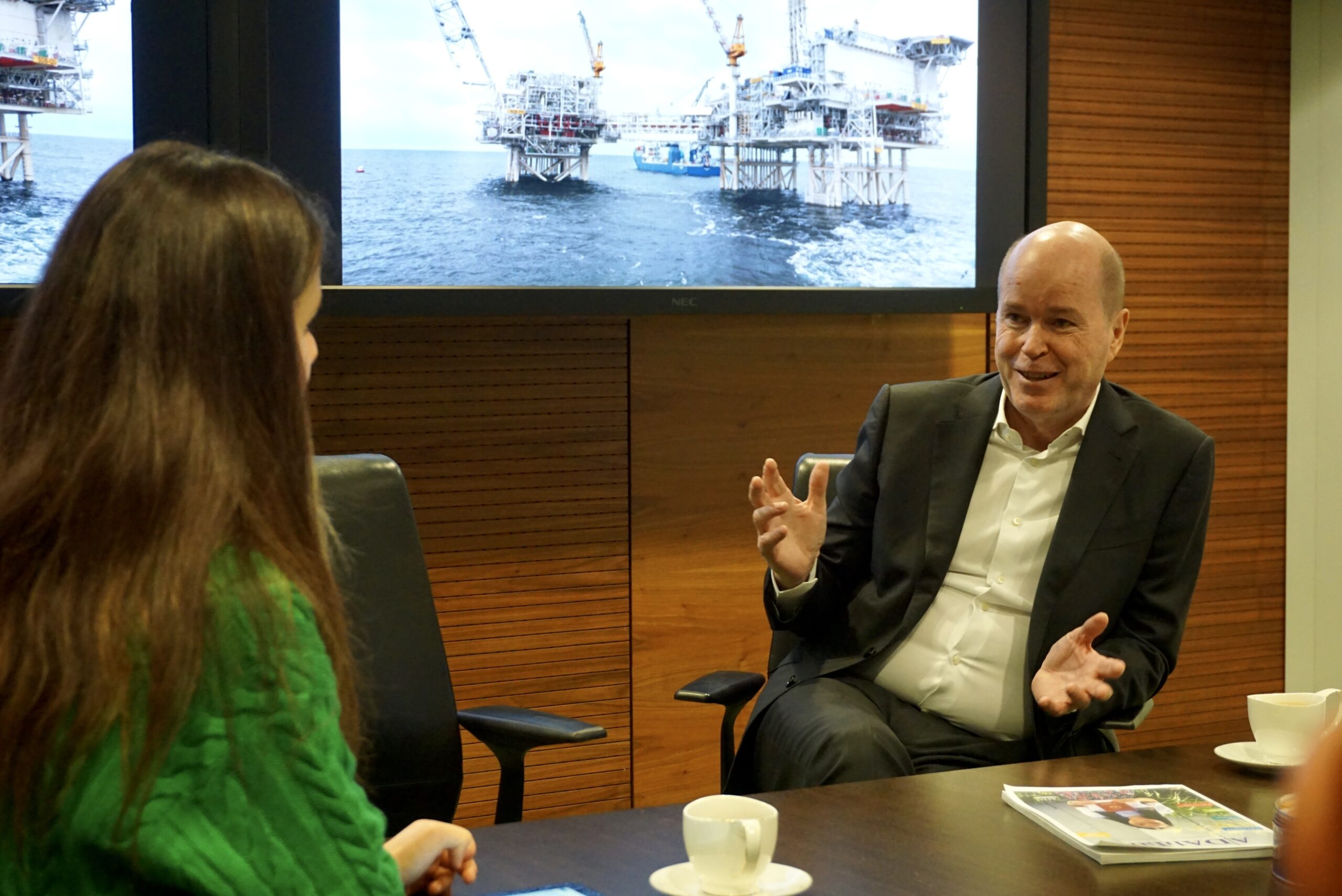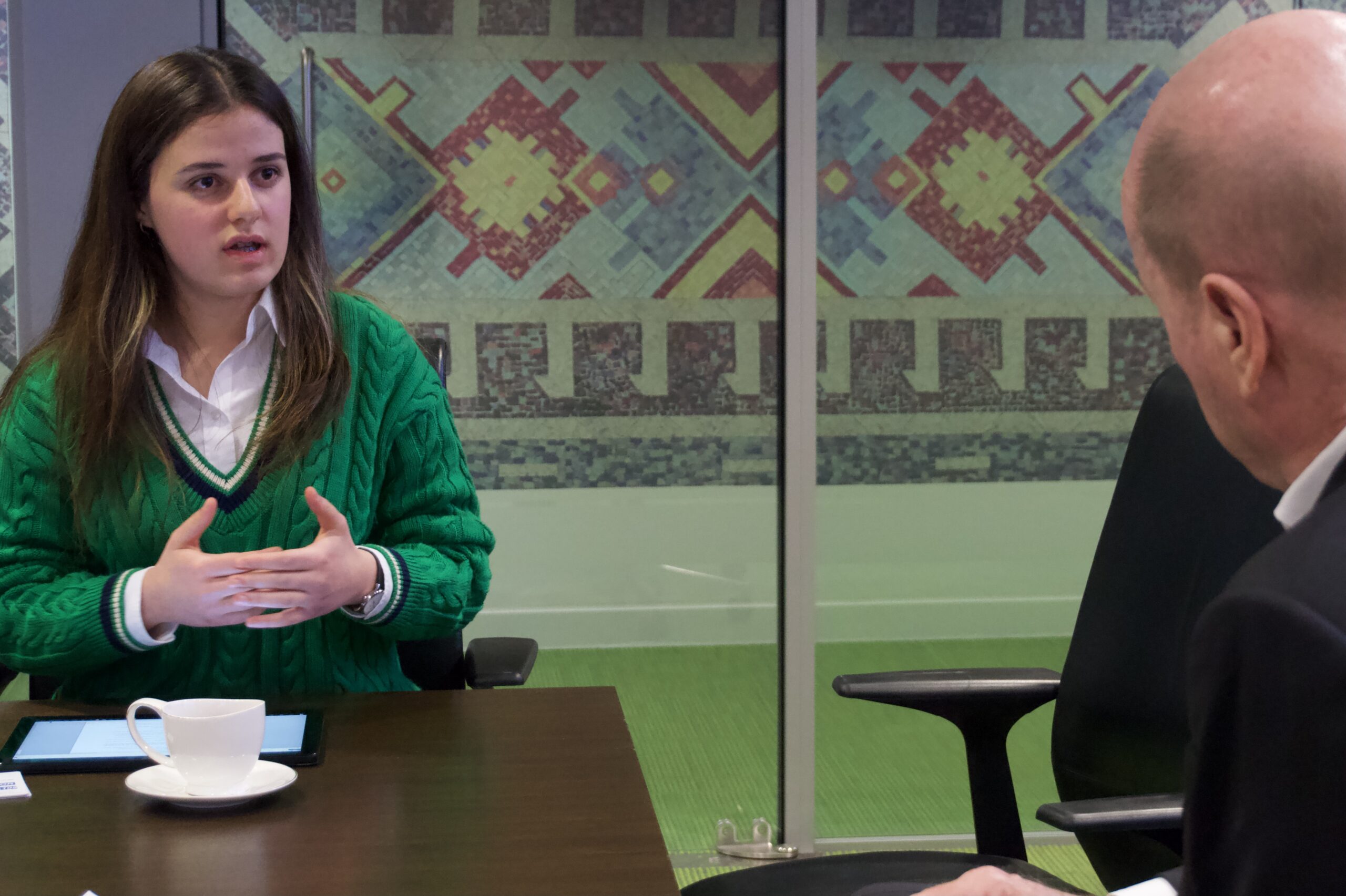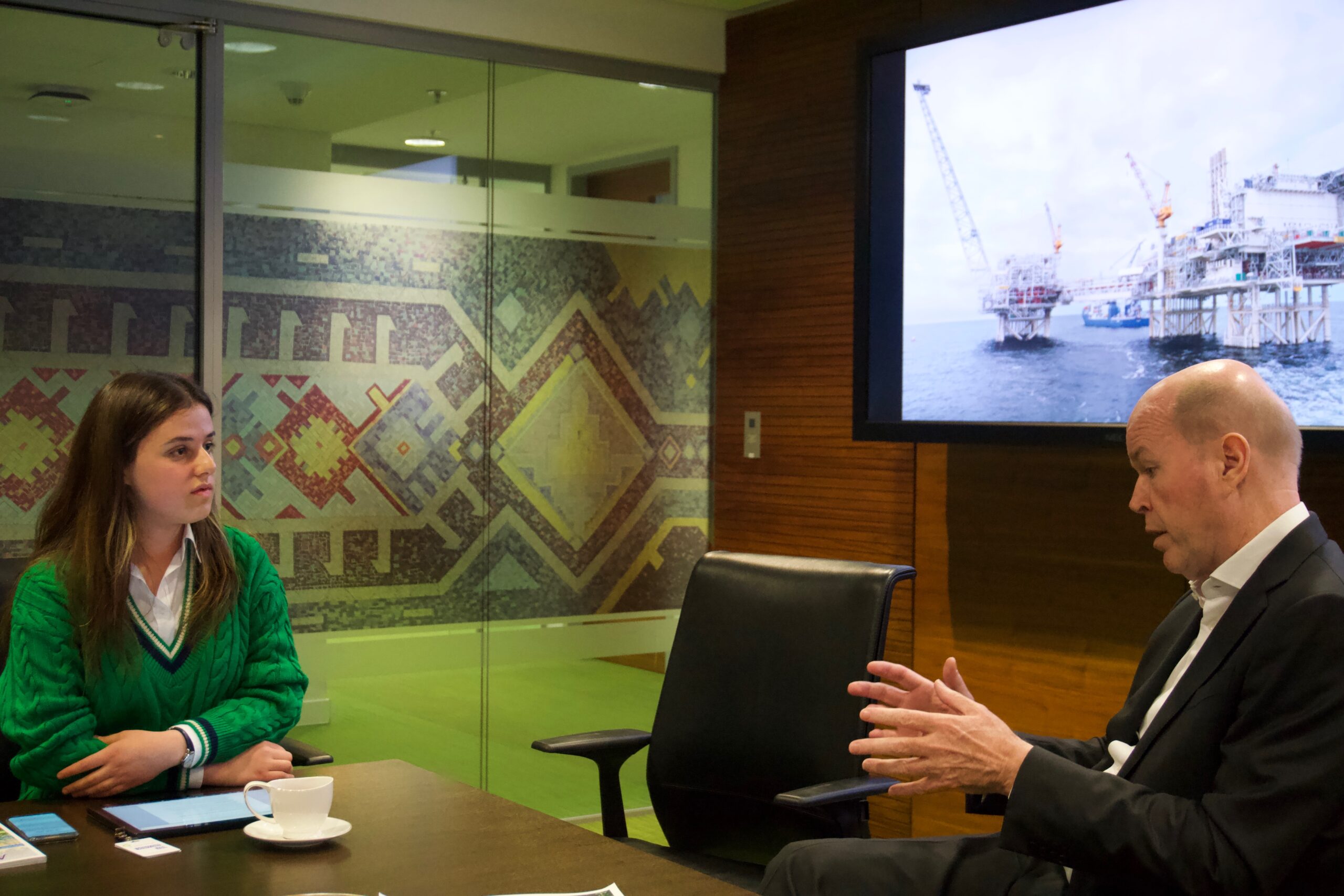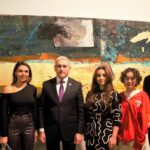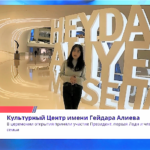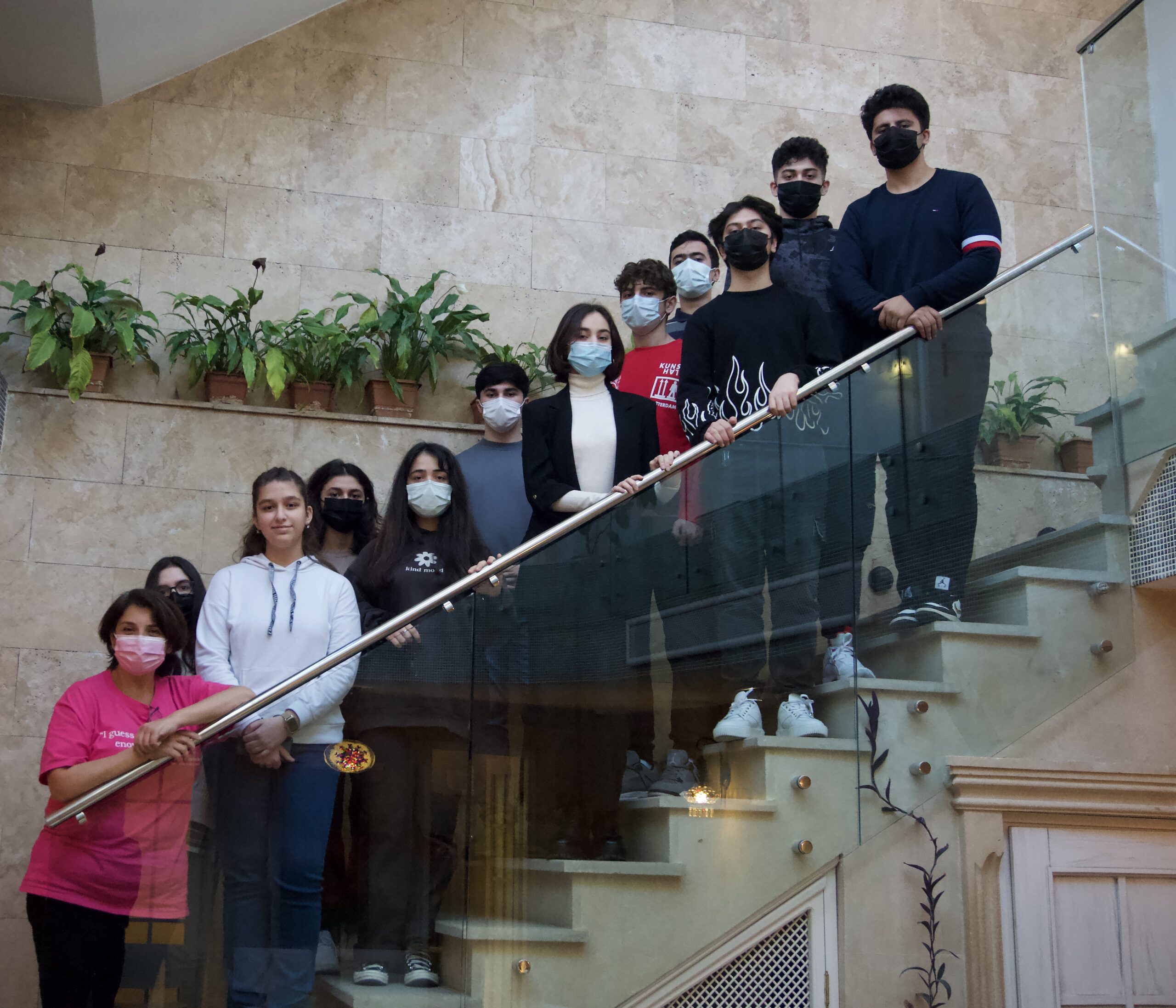For the last 30 years, BP in Azerbaijan has been one of the biggest contributors to the development and growth of the country’s economy by providing a substantial new revenue stream for the state of Azerbaijan. As an exemplary corporate citizen, the company has supported a number of capacity-building and educational development projects in the country, and cooperation with ADA University is among them.
ADAlilar magazine’s editorial member Khadija Ahmadova talked to Gary Jones, the president of BP for the Azerbaijan Georgia Turkey (AGT) region, to get his reflections about BP Azerbaijan’s plans on clean energy and what skills will be required from candidates to drive the energy transition.
Khadija Ahmadova: BP is transitioning to become a net-zero company and I assume Azerbaijan as one of its most important businesses will need to have an important role in this process. How do you see the potential for transitioning into the renewable energy business, for BP in Azerbaijan? Is it realistic for BP Azerbaijan to achieve a Net Zero target and stay economically viable?
Gary Jones: I think it’s a really good question. Many of our staff are asking the same question. You are right, BP Azerbaijan is a very big piece of business for BP in terms of scale. It’s the biggest activity area we have around the world. Obviously, we have two giant world-class fields, ACG and Shahdeniz, where we are exploring, which involve exploration and drilling. In fact, if you look out the window (of Mr. Jone’s office), you’ll see the Satti jack-up rig is sitting right in the bay here to do the drilling for the second SWAP well. As part of the project, there are lots of activities what we call the traditional oil and gas business, and that will continue.
In terms of the energy transition, we’re completely signed up for that. Our CEO, Bernard Looney has been very clear about the energy transition, and we want to be absolutely part of that. But it is a transition, it will mean the transformation of our existing oil and gas business, reducing our hydrocarbon footprint, and thinking about how we can improve the efficiency, and decarbonize that model of business. And then also about the renewables side of the business, for example, solar, offshore wind. For us in Azerbaijan, that is very exciting, because we’re blessed with fantastic and high-quality oil and gas reserves. But as you know, since you are from Azerbaijan, we’re also blessed with very good wind resources. The wind offshore in the Caspian is very high quality, comparable to some of the big wind projects that we’re looking at in the North Sea, in the UK, and off the coast of America. And you may also know that we are very interested in doing our first solar project in Azerbaijan, in the liberated territories, which we are working with the Ministry of Energy.
As you know, Bernard Looney, our CEO, has laid out a strategy for the company, and I think this region mirrors that strategy. Bernard, in fact, was here about three or four weeks ago, and we met with the President. Mr. Ilham Aliyev, and that’s exactly what we talked about: how we build on fantastic past and track record of working together, and then how we help go through the energy transition together. The good news is that the President has been very clear about his aspirations for the country. We’ve signed a Memorandum of Understanding, which is an alignment between us and the government through the Ministry of Energy on how we can work together on that transition.
Kh.A.: Yes, I have listened to Mr. Bernard Looney’s reflections about Net Zero and I found them both exciting and ambitious. So, BP Azerbaijan’s plans perfectly align with the BP Group’s goal, which is really impressive. Before we dwell on the transformation conversation, can you let us know what has been BP Azerbaijan’s biggest challenge during the pandemic? What has been the company’s overall response to the challenge?
G.J.: It has been an extraordinary couple of years for everybody on the planet. None of us have lived through a pandemic like this before. The last one was in 1980. And I am, quite frankly, astonished that we have managed to keep the business going through this pandemic. This has been so because of the commitment and professionalism of all of our employees. They have made massive sacrifices in terms of what they have had to go through, to keep reducing the oil and gas in terms of quarantining and testing, and extending rotors. And they have done it because they understood the criticality of keeping the energy flowing, particularly, of course, when we had the conflict, and it was essential that we kept the oil and gas resources flowing. At that time, that was the role that our staff could primarily play in supporting the country. Although, of course, we did have some boys who were also on the frontline.
So, I think it has been a terrible time for everybody. Many people were touched and more deeply those who have lost their loved ones. And even if they haven’t, they’ve been impacted by the lockdowns and all the measures that we’ve had to put in place.
I hope that through the vaccination program, which we think is the best way out of this pandemic, we will be able to get back to normal. At bp AGT, 90% of our people offshore and in the office are now vaccinated, and we’ll start looking at this booster campaign. It has been a very traumatic period to live through, but it has just shown us the resilience of our people to get through this time.
Kh.A.: I appreciate your thoughts Mr. Jones and it was great to know about BP’s effective response to the pandemic. Back to the transformation topic, what do you think are and will be the most demanded skills and capabilities in light of the transformation?
G.J.: The transformation is a very exciting thing for people like yourselves, who are starting to think about university very soon. It’s because this is a time of significant change, as well as a time of developing the new skills that we’re going to need, which are primarily digital awareness, creative thinking, and agile thinking.
And that is what we’re driving now within our company. It’s all about how you communicate, how you simplify decision-making. Fundamentally, how do we make sure that everybody in the company understands where we’re going. And that’s why what Bernard Looney has done is so powerful because he has been so clear about where the company is going. So, when we’re trying to make tough decisions, we can just say, where are we headed, and then we can get behind it. What we’re trying to do is drive that level of communication to everybody in the company, so that everybody understands their role.
So, I think what really matters is whether it is their first day in the company, or they have been 40 years in the company, the people’s opinion and that their input is very highly valued because you understand where the company’s going.
Kh.A.: Do you think our current education system requires any transformation to nurture those skills?
G.J.: I have to say, I’m incredibly impressed with the universities that I have visited in Azerbaijan. I have obviously been to ADA, to Baku Higher Oil School, Baku State University, and I’ve been to many universities here and the standard of the students is I think exceptional. And what I observe is they are really looking at the skill sets and the courses that are needed. So, I see a lot more now automation engineers, being trained at some of the schools. We are looking at digital skills, computer skills, and data analytics, which is a massive one. And of course, ADA is right at the heart of the center that we helped set up nearly four years ago. We have now set up a dual Master’s course, at ADA, as well as on computer science and data analytics. I think to understand data, in my generation, you’d perhaps need to spend a lot of your time trying to get the data in the first place, while in your generation, the data will be at your fingertips. There will be lots of artificial intelligence, and your role will be to tell us what we need to do with all this information. Let me give you an example.
When they first started flying airplanes, a pilot had to do everything. He had very few dials or information in his cockpit. And they were basically making all the decisions. If you look at a jet fighter pilot today, computers are making 99% of the decisions and they’re providing the pilot with critical data for when he needs to intervene. If you look at local AZALplanes, now they can take off and land automatically. The pilots, are just on top of all of that AI that’s available to them, and that is what everyone’s life is going to be like, which is exciting. Human beings have fantastic brains and using those brains properly, I think they’d be coming up with some really exciting outcomes![]() .
.
Kh.A.: Is BP planning to further cooperate with the Ministry of Education, and with ADA University in the area of educational development?
G.J.: Absolutely. We have been nearly 30 years now in the country and a cornerstone of our whole social investment program is all-around education. In some projects it’s working directly with the universities, in some, it’s on degrees. As part of some initiatives, we have developed and translated books for universities. But one of the things that I enjoyed most, was when I arrived in Azerbaijan, as we went to visit quite a few farmers along the routes of our pipelines, and we were working with them, to educate them on how they can increase the yields on their farms. The other area was supporting the introduction of beekeeping skills to again, expand the opportunities within the farm.
All in all, education is really where we focus, because if you teach people how to do things, it’s far more valuable to them than doing it for them. So, I think that’s been at the cornerstone, and I think that will continue, for sure.
Education is one of the powerful areas and if you build and focus on it, and give people the right skills, then you get some fantastic outcomes. And the reality for people like you is, based on what I read, that 80% of the jobs in 2030, this was only nine years away, haven’t been invented yet. I would encourage you to realize what you will get going forward – you’re going to leave school, go to university, and then graduate. However, the learning experience will go on through your entire life, adapting, building, and continuing to keep up to speed with everything that is happening in the world. I’ve said it to my team, I’m learning at a faster rate now than I have ever done and I find that very exciting.
Kh.A.: That is very encouraging. I also think that changing the mindsets of people is really important for this transformation.
For most of your career, you have been dealing with oil and gas. Was it difficult to face the necessity of the transformation?
G.J.: I think that’s a brilliant question. I think the way I look at it is what we fundamentally do as engineers and scientists is solve problems. We solve complex problems. For me, the exciting part of the energy transition is that it is a very complex problem, and how we ensure that we continue to supply energy to the world. Because quite frankly, there are still millions of people around the world that do not have access to simple things like electricity and fresh water and these sorts of things. And that energy demand is going to continue increasing. We managed to maintain that energy demand while we absolutely critically transformed to a much lower carbon future. It is going to be very complex and require all of our skillsets to achieve that. They are mostly technical skillsets, but then there are also behavioral skillsets and how you work together as teams to solve complicated problems.
I think it’s about the clarity of where we are going. I have now got two beautiful little granddaughters, and obviously, from my perspective, I want them to have a planet that is going to be safe to live in. So, we are all invested in doing the right thing going forward.
Kh.A.: Mr. Jones, you have been in Azerbaijan for about five years now. What do you think about Azerbaijan and Azerbaijani people?
G.J.: Well, I love it here and I have been here since 2017, and one of the things I love about the Azerbaijani people is attitudes. You have mentioned mindset which means you’ve obviously been doing a lot of reading because the mindset is a big part of the transformation. People understand that change is inevitable, so they are getting on board with the change, and your role in it is very important. But the attitude I found in Azerbaijan and across the regions is people’s desire to learn, to improve themselves, to get better. The second thing is the hospitality and the friendship that is shown to people when they come here when you go to dinner for instance. Also, the way you’re treated in the family home is just fantastic, and it reminded me of what it was like in Wales when I was growing up. I’m Welsh, and I remember when I was a child, it was like that in north Wales, where I come from. In my grandmother’s house, there were always people coming in and out the door, socializing, and there was always tea being brewed, and food being made available – it was lovely.
I think the final and exciting thing for the country is that you now have top universities, you have a president and a government that are very ambitious to embrace the transformation of the energy industry, and what that might mean is the diversification of business opportunities in the country. I think it’s going to be very exciting times for the country going forward, and you’re going to be a big part of it.
Kh.A.: It is very reassuring to hear that coming from you Mr. Jones.
And last but not the least, what would be your top three advice to ADA students?
G.J.: First of all, what I always say to people is to go big on ambition. Think big, don’t be constrained by anything, and particularly, if you’re going to enter ADA University or any of the top universities here, you are going to be in an incredibly privileged position because you deserve it because you’ve worked for it. There should be no barriers to what’s possible to you, it’s entirely up to you in terms of what is success for you. What I quite often see is people never realize how much they could do, so go big on ambition, don’t let people tell you, it’s not possible.
Secondly, don’t be scared of making mistakes, because we all make mistakes, and we all learn from them. I find that many students are used to getting high marks at everything they do, and that’s obviously very good. But in real life, if you only do things where you’re sure of succeeding you will miss out on two things. One is growth, your personal growth because it’s when you make mistakes, you learn a lot about yourself, and about the consequences of those mistakes. So, making mistakes is actually a very healthy thing to do. And the second point is, if you only keep doing things that you feel comfortable in, you’ll never really stretch yourself. Don’t be afraid of making mistakes, because trying a few things that you are not sure about will eventually make you successful. It gives you the confidence to do that often, so.
The third thing is that it’s all about relationships. However good you are, intellectually, technically, it is how you relate to other people, how you treat, and respect them, because at the end of the day, if you know all the answers but there’s no one who wants to listen to you, you’re not going to be very successful. You should think about that even now when you’re at school. ADAlilar magazine is a great example of that because to produce something like this requires great collaboration, strong teamwork.
I should say I love the picture of your team on the magazine – all those people have roles, working together to produce a first-class publication like your magazine. Well done, it is a brilliant product, and keep up doing a great job!
Kh.A.: Thank you, Mr. Jones, for your time and your valuable insights.
